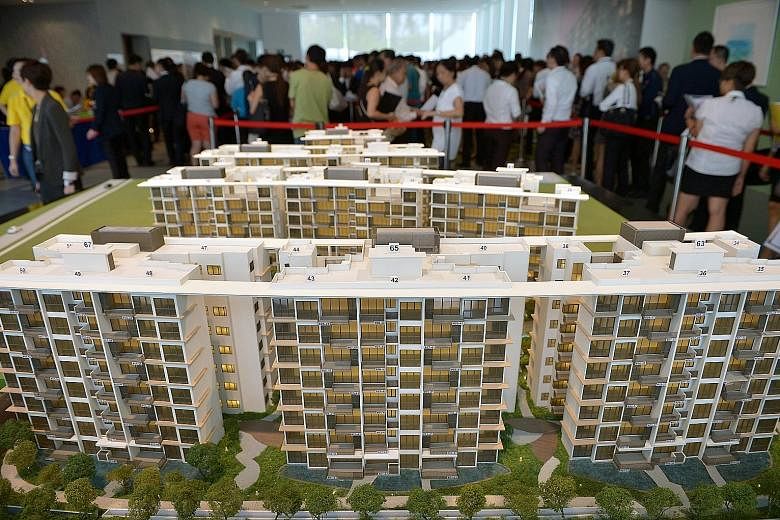The amount of stamp duty assessed by the taxman has declined over the last two years, as the tepid property market took a hefty toll.
For the year ended March 31, 2016, stamp duty assessed totalled $2.96 billion, a 28 per cent slide from $4.11 billion two years ago.
This is according to the latest figures from the Inland Revenue Authority of Singapore (Iras) obtained by The Straits Times.
The slowdown is likely the result of a raft of cooling measures, such as the Additional Buyer's Stamp Duty (ABSD) introduced in late 2011 to help cool the red-hot market then.
Singaporeans buying second or subsequent properties have to pay an ABSD of 7 per cent to 10 per cent. Foreigners pay more - 15 per cent on home purchases.
The Iras figures show that for the 12 months ended Dec 31 last year, the ABSD assessed was $788 million, from $1.5 billion two years ago.
Ms Christine Li, Cushman & Wakefield research director, said: "ABSD has been down for two consecutive years... most buyers are still cautious when it comes to buying a second or subsequent property and ABSD has served as a deterrent to property investment."
-
$2.96b Amount of stamp duty assessed for the year ending March 31, 2016
$4.11b Amount assessed in the same period in 2014
However, Ms Li expects ABSD to spike this year, as the Real Estate Developers' Association of Singapore has stated that about 4,000 unsold units in 42 developments will be affected by the remission claw-back of the ABSD by 2018.
Chesterton Singapore managing director Donald Han said the seller's stamp duty assessed also fell to $26 million for the year ended Dec 31, 2015, from $49 million two years ago.
"The volume of transactions has become low... Property owners are not able to sell because the operating environment does not provide enough profitability to dispose of their property," he said.
Both Ms Li and Mr Han observed that while the stamp duty assessed from sale and purchase agreements has dipped, the amount assessed from share transfer has increased.
Stamp duty on share transfer has jumped for the second consecutive year to $93 million, up 10.7 per cent from the $84 million assessed for the year ended March 31, 2015.
"... in recent years, developers which have non-Singaporean shareholders have been hit by QC (qualifying certificate) extension charges. As a result, there has been an increase in bulk purchases through share transfers so as not to attract company ABSD," explained Ms Li.
Property experts said existing curbs have stabilised the market and private home prices have fallen by double-digit percentages from the peak. The high-end segment - being the most dependent on foreign demand - has suffered the brunt of existing curbs.
Separately, Iras says it takes a strong stance against non-compliance. Its auditing programmes have been successful in identifying non- compliant cases involving significant stamp duty amounts.
Iras recovered about $21 million in taxes and penalties from stamp duty audits in the three years to March 31. Close to 40 out of 437 stamp duty audit cases uncovered during the same period involved non-compliance of the ABSD.


